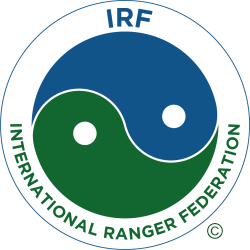The Game Rangers’ Association of Africa (GRAA) is Africa’s oldest and largest ranger association, founded in 1970. With a membership of over 2,500 rangers across 20 countries, GRAA proudly represents the International Ranger Federation (IRF) in the region.
African rangers work at the coalface of conservation practice across diverse land and seascapes, often under difficult conditions. Their tasks include activities like range management, collection of research data, monitoring, combatting the illegal wildlife trade through anti-poaching efforts, wildlife capture, population management, fire management, maintenance, environmental education and importantly working with communities.
In modern Africa, the ranger’s role is changing with more time being devoted to social issues brought about by human wildlife conflict and syndicated poaching of rare and endangered species. Rangers are becoming an important interface between natural resources and communities that depend on them, bringing a new and complex dimension to the rangers’ work.
The conditions under which Africa’s rangers patrol are often extreme and take place in rugged terrain and in all types of weather. Additionally, there is always the risk of encountering dangerous animals, well-armed poaching gangs or militia groups. Rangers therefore need to be professionally trained, equipped and supported to work in these conditions with ranger safety being paramount.
Rangers in marine protected areas protect vital habitats that provide sustainable resources for many impoverished coastal communities while also protecting key species such as the abalone, turtles, dugongs, whales and dolphins and often working in areas where pirates and extremist groups occur.
The GRAA is acutely aware that the rangers’ job both is dangerous and challenging exacerbated by being under resourced in terms of training, equipment, and leadership. We are thus hard at work in attempts to better support rangers so that they may perform at their optimum as their work benefits species, habitats, ecosystems and communities across the continent.
We provide an effective community of practice for rangers to share their experiences, specialised knowledge and best practices. We promote the interests of rangers through our advocacy work and help to ensure better ranger support and capability which is essential for a motivated and effective ranger corps that has positive outcomes for conservation.
For more information go to www.gameranger.org
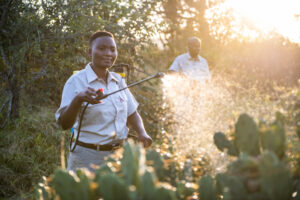
Diverse work of a ranger
Rangers do diverse work – here a ranger is busy with invasive alien plant control, Somkhanda Private Game Reserve, South Africa.
©Peter Chadwick, GRAA Ranger Legacy Project
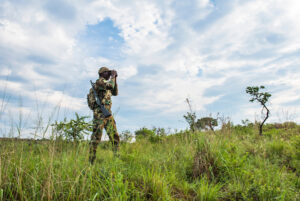
Rangers monitor wildlife
Wildlife monitoring and research are important aspects of a ranger’s work. While research may require specific scientific input, much of the monitoring that is carried out on protected areas is undertaken by the ranger teams, making this a vital part of their daily duties. Thorough analysis enables proactive and adaptive management so that potential problems can be avoided.
©Thomas Nicolon, GRAA Ranger Legacy Project
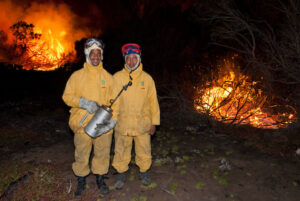
Rangers Back burning a fire line.
Fire is just one of many challenges that rangers must manage and face through their daily duties. Fire management is both terrifying and dangerous and requires calmness and clear decision making to deal with. In many areas across the African continent, fire is part of the management toolkit to ensure thriving ecosystems and biodiversity and as such, controlled burns are lit by the ranger teams in suitable conditions.
©Peter Chadwick, GRAA Ranger Legacy Project
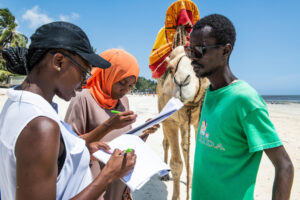
Women Marine Rangers interviewing stakeholders, Mombassa Marine Protected Area, Kenya
Marine rangers work closely with local communities to ensure resources for many impoverished coastal communities are sourced sustainably, while also protecting key marine species.
©Peter Chadwick, GRAA Ranger Legacy Project

Rhino Monitoring Field Ranger, Nambiti Private Game Reserve, South Africa
Patrolling is one of the most important tasks of a ranger’s job. These rangers are the eyes and the ears of a protected area and it is therefore incumbent upon them to intimately know what is happening on their terrestrial or marine reserve and patrolling helps them achieve this. These patrols are not only for law enforcement purposes but also give information of the status and condition of infrastructure such as fencing, water-points and roads and buildings.
©Peter Chadwick, GRAA Ranger Legacy Project
IRF Members in Africa
Association des Rangers Congolais

Association des Rangers du Cameroun

Association des Rangers du Gabon (AGR)

Association of Wildlife Conservancy Rangers in Kenya

Benin Ranger Association

Big Life Foundation

Chengeta Wildlife
Community Rangers Association of Congo (CAF RDC)

Direct Ranger Fund Malawi

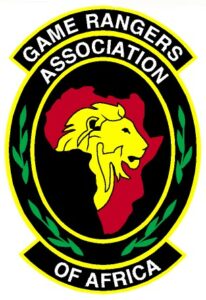
Game Rangers Association of Africa

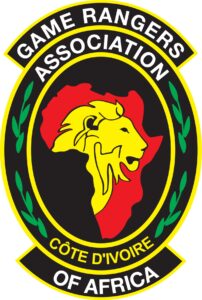
Game Rangers Association of Africa – Cote D’Ivoire

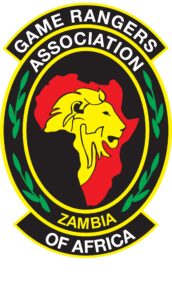
Game Rangers Association of Africa – Zambia

Global Conservation Corps

International Fund for Animal Welfare (IFAW)

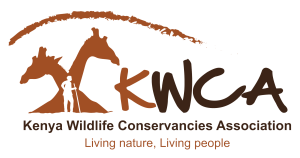
Kenya Wildlife Conservancies Association (KWCA)

NGO MakiGo

Nigeria Rangers Association

PAMS Foundation

Ranger Association of Congo Brazzaville

SAVSIM

Scent imprint Conservation Dogs
Soldiers for Wildlife

Tanzania Wildlife Management Authority

The Frontier Collective, South Africa

The International Rhino Foundation

Uganda Wildlife Authority

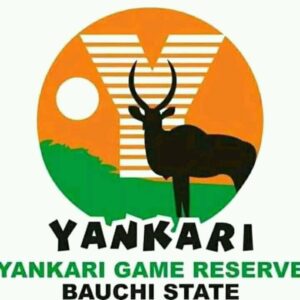
Yankari Game Reserve

